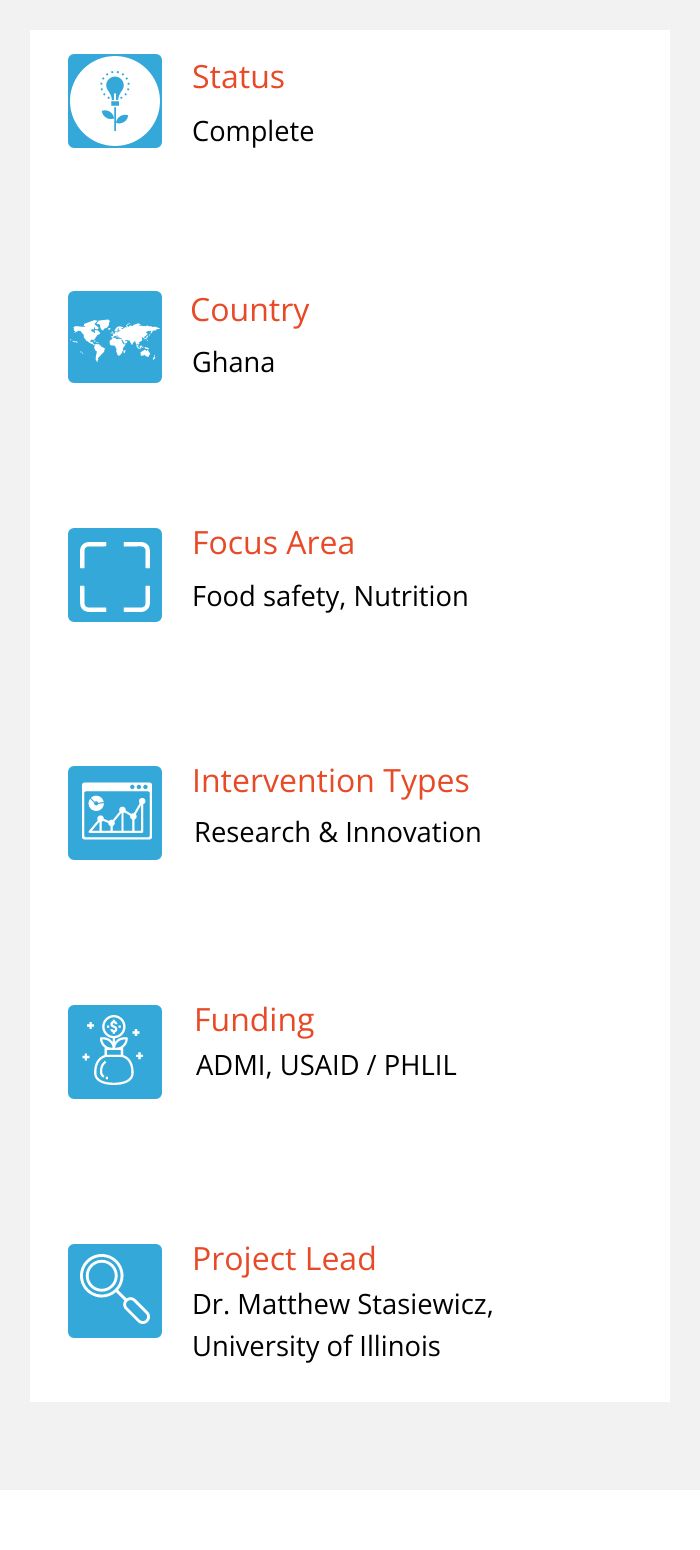Small-scale kernel sorting to remove mycotoxin-contaminated maize from the food supply
Background
This project is part of the Feed the Future Innovation Lab for the Reduction of Post-Harvest Loss (PHLIL) Phase 2 led by Kansas State University. PHLIL is a strategic, applied research and education program aimed at improving global food security by reducing post-harvest losses in stored product crops. ADMI is a subawardee in the PHLIL project and works with Bangladesh Agricultural University (BAU), University of Illinois-based AgReach, and Assistant Professor Matt Stasiewicz to achieve objectives within the PHLIL project.
Project Information
University of Illinois Assistant Professor Matt Stasiewicz is conducting research to test low-cost sorting technologies to separate maize kernels with fungal contamination from those without. Through previous proof-of-concept work in Kenya, Stasiewicz’s research has shown that an average of 80% of aflatoxins and fumonisin in heavily contaminated bulk maize by single-kernel sorting with a relatively inexpensive optical sorter. Removing contaminated kernels can reduce postharvest losses, both in terms of the numbers of kernels that are safe to consume and the nutrition content of the kernels that remain.
The project goal is to develop a low-cost, single-kernel sorter to remove mycotoxin-contaminated maize. Ruben Chavez, a University of Illinois doctoral student and PHL Scholar, is working with Stasiewicz.
Project Progress
Some Ghanaian poultry farms have a cleaning system for corn, so Stasiewicz will also examine if existing grain cleaning systems can assist in removing mycotoxin from maize.
Because of COVID-19 travel restrictions, research partners at Kwame Nkurumah University of Science and Technology (KNUST), Ghana, collected and shipped grain samples to the University of Illinois.



